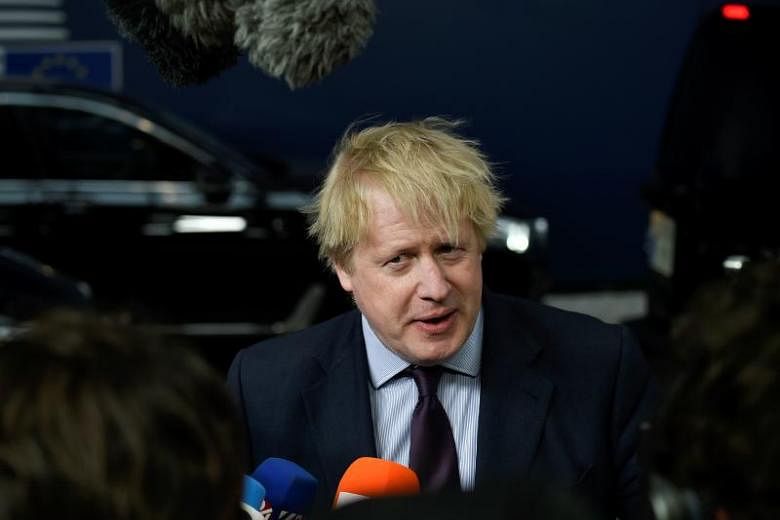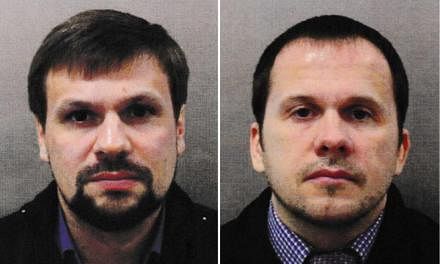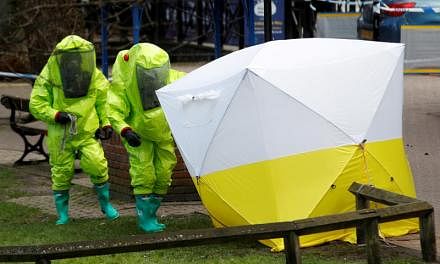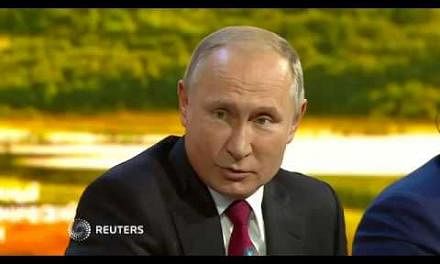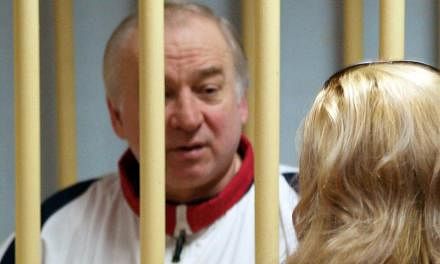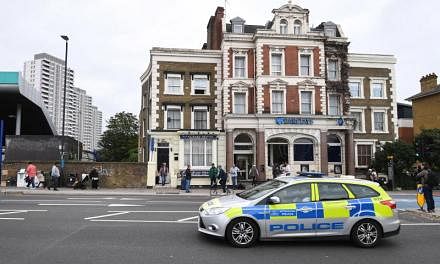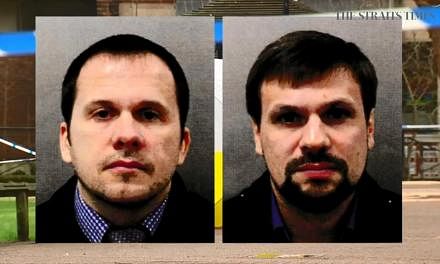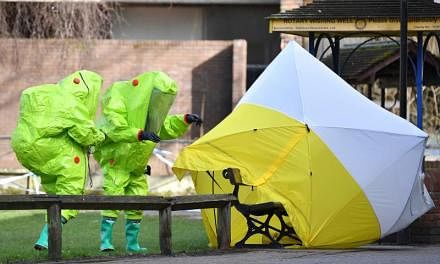BRUSSELS (AFP, REUTERS) - Moscow's denials over its involvement in the nerve agent poisoning of a former Russian spy in Britain are growing "increasingly absurd", British foreign minister Boris Johnson said on Monday (March 19).
The Kremlin has rejected allegations by London and its allies that Russia was behind the March 4 attack on Sergei Skripal and his daughter Yulia in the English city of Salisbury as "nonsense".
As international chemical weapons experts were due to arrive in Britain to investigate the incident, European Union foreign ministers voiced their support for Britain as they gathered for a meeting in Brussels on Monday.
"The Russian denials grow increasingly absurd," Johnson said as he arrived for the meeting.
"This is a classic Russian strategy of trying to conceal the needle of truth in a haystack of lies and obfuscation."
London says the Soviet-designed military grade nerve agent Novichok was used to target Skripal and on Thursday Britain, France, Germany and the United States issued a joint statement blaming Russia for the first offensive use of chemical weapons in Europe since World War II.
"What really strikes me, talking to European friends and partners today, is that 12 years after the assassination of Alexander Litvinenko in London, they're not fooling anybody any more," Johnson said.
"There is scarcely a country round the table here in Brussels that has not been affected in recent years by some kind of malign or disruptive Russian behaviour," he added.
Russian dissident Litvinenko was poisoned with radioactive agent polonium in London in 2006 in an attack Britain also blamed on the Kremlin.
Johnson will update his European counterparts on the investigation, but Monday's meeting is not expected to agree any measures targeting Russia, which is already under heavy EU sanctions over its annexation of Crimea and meddling in Ukraine.
The EU's diplomatic chief Federica Mogherini said the bloc stood in "full solidarity" with Britain over the incident, which she called "completely unacceptable".
EU foreign ministers on Monday (March 19) strongly condemned the poisoning of a former Russian spy in Britain and said they took "extremely seriously" London's assessment that Moscow is to blame for the attack.
"The European Union takes extremely seriously the UK government's assessment that it is highly likely that the Russian Federation is responsible," the 28 ministers said in a statement from a meeting in Brussels.
In a joint statement last week, the leaders of the United States, Germany and France backed Britain's analysis that the Russian state was responsible for what British police suspect was the attempted murder of Skripal.
It is considered to be the first offensive use of a nerve agent on European soil since World War II. The three countries called for Russia to fully disclose details of its Novichok programme to the OPCW, a demand also backed by the EU foreign ministers on Monday.
EU leaders are also set to discuss the issue at a summit in Brussels on Thursday.
British Prime Minister Theresa May last week announced the expulsion of 23 Russian diplomats and suspended high-level contacts, including announcing that British royals and ministers would boycott this summer's football World Cup in Russia.
Moscow has expelled 23 British diplomats in a tit-for-tat measure and said it would halt the activities of the British Council in Russia.
The Kremlin said on Monday that London would either have to back up its assertions that Russia was behind the poisoning of a former spy and his daughter in Britain with evidence or apologise "sooner or later".
Kremlin spokesman Dmitry Peskov told a conference call with reporters that Britain's allegations were "difficult to explain... groundless and slanderous".
Russian President Vladimir Putin said on Sunday it was nonsense to think that Moscow was responsible for the attack.
Its ambassador to the EU, Vladimir Chizhov, suggested at the weekend that Britain itself may have been the source of the chemical.
Britain has pointed to a similar case from the recent past: the 2006 radiation poisoning of former spy and Kremlin critic Alexander Litvinenko in London.
London has also emphasised what it says is a pattern of Russian aggression, including its annexation of Crimea and alleged meddling in Ukraine, which has already prompted heavy EU sanctions.
